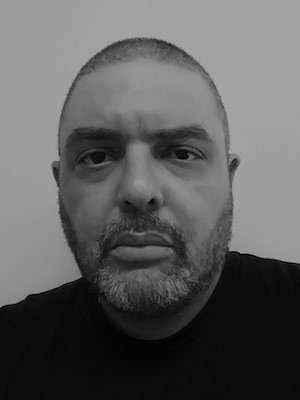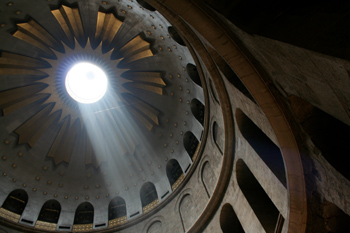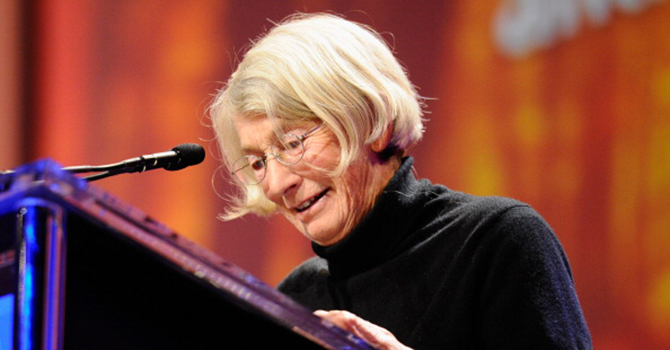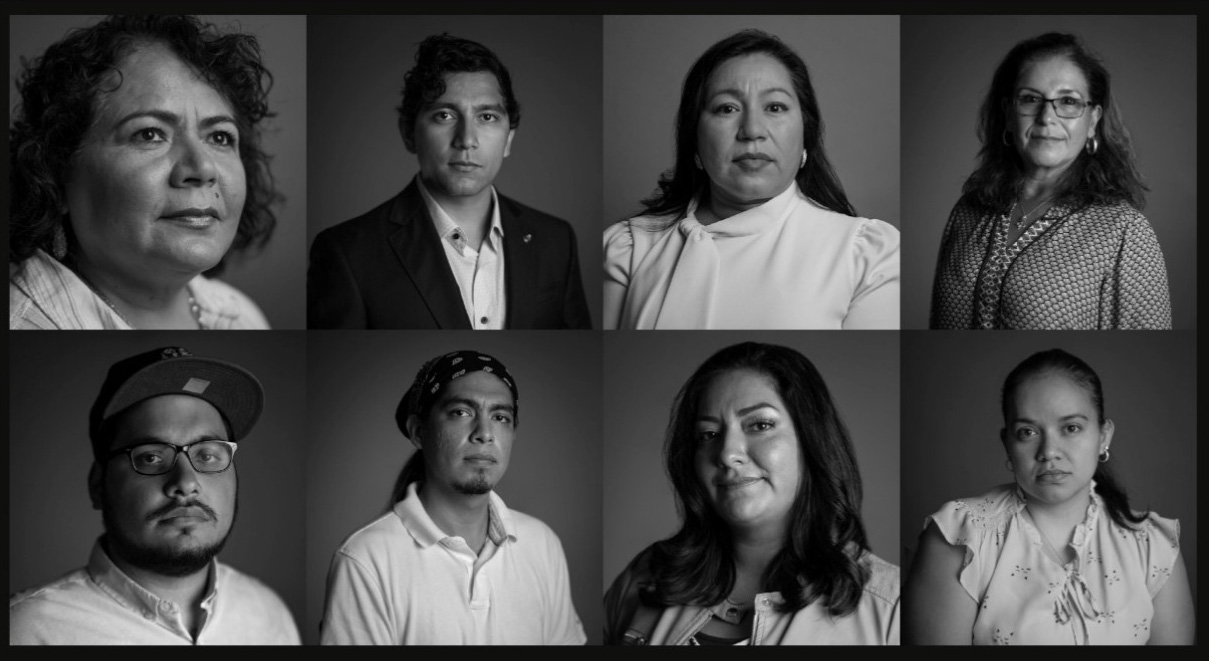Shane McCrae was kidnapped by his maternal grandparents at the age of 3. His grandparents were white supremacists and McCrae – the son of a white mother and a Black father – was raised to believe that his father had abandoned him.
Fear and anger marked his childhood, but two conversions altered his path: one to the power of poetry and another to the power of God.
After hearing a snippet of Sylvia Plath’s poem “Lady Lazarus” as a teenager, McCrae focused on writing poetry as the only way he could see to move forward in life. As a young adult, he had a miraculous experience that made him believe in God. He later was baptized in the Episcopal Church.

“I saw no future for myself when I was 15 years old. I didn't have any interest to do any kind of job at all. And even though I saw the future as an emptiness, [I thought] there might be a way for me to move into and through it. And that way would be poetry,” he said.
McCrae earned a GED diploma after dropping out of high school, attended community college and graduated from Linfield College in Oregon. He went on to earn an M.F.A. and an M.A. from the University of Iowa and a J.D. from Harvard Law School.
He is the author of eight books of poetry including “Sometimes I Never Suffered,” in which he writes about a character he calls “the hastily assembled angel” as well as Jim Limber, who is based on a real, mixed-race child taken in by the family of Confederate President Jefferson Davis.
He also has written a book called, “Pulling the Chariot of the Sun: A Memoir of a Kidnapping.”
He has been described as “a contemporary mythmaker, a poet who is able to lift his art to a spiritual plane.”
McCrae, who teaches at Columbia University, is the recipient of many honors, including a Lannan Literary Award, the 2023 Arthur Rense Poetry Prize, the 2022 Michael Marks Award, fellowships from the Guggenheim Foundation, the National Endowment for the Arts, and the New York Foundation for the Arts.
He serves as poetry editor for Image Journal.
McCrae spoke to Faith & Leadership’s Sally Hicks about his life and his poetry. The following is an edited transcript.
Faith & Leadership: Would you consider yourself a Christian poet? Or do you dislike that kind of label?
Shane McCrae: I’m a Christian, and that’s central to my life. And so insofar as anything I do, I’m a Christian doing that thing.
I think about this sometimes and I think it’s dangerous to think about whatever it is that one’s trying to do for a living too much, particularly if one’s trying to make art.
But I am, I guess, somebody that I would think of as a Christian formalist who is trying to occupy a mainstream position in contemporary American poetry.
If you had asked me before I started trying to do it, I would’ve probably said, “Well, there’s no room for such a person.”
It’s not that American poetry is particularly hostile to either thing. It is rather that such poets have not necessarily occupied that mainstream for a while.
F&L: How did being kidnapped and raised by people you’ve described as white supremacists affect you as a child?
SM: It’s difficult to say, I guess, how being raised by white supremacists affected me as a child, insofar as when one is a child, generally speaking, one doesn’t know any different from the way one is being raised. My awareness of any effect it might be having was essentially nil.
Honestly, I do think that it really was the kidnapping itself that had the most effect insofar as I think it was a really major contributor to a sort of desperation.
I was very unpopular and not liked at all, but I was very desperate to be liked. I was a very angry child, I think, for the same reason. Very angry and very, very competitive.
I think that has to do with the kidnapping and probably to do with the way that my grandparents raised me to think about my father. And I suppose, also, the way that they raised me to think about myself, although that’s a little complicated because they raised me to be as little aware of my blackness as they could.
A very desperate need to be liked, a very desperate need to be popular. This was an extension of, I think, a desperation to have a sense of home, a sense of security in the place where I lived.
I also started to become an atheist when I was maybe 16 or 17. This was before there was a popular understanding of the New Atheism. But I was that type, I was very aggressive about it.
F&L: Were your grandparents religious? Was your teenage atheism a rejection of them?
SM: My grandparents weren’t religious [when I was a child]. They were nominally Lutheran, but the atheism arose out of, I don’t know what. I think it had to do with my teenage angst. That’s not to say that there aren’t reasoned ways to get to atheism, but for me, it was much more emotional.
F&L: You’ve described how you heard someone reading part of Sylvia Plath’s poem “Lady Lazarus” in a film at age 15, and you loved it because it seemed so goth. How, from that teenage anger, and a pretty miserable childhood, did you become a professor at Columbia and an honored poet?
SM: I had sort of dropped out of life when I was pretty young and I had no inclination to do anything. I skateboarded and I was really passionate about that.
When I heard “Lady Lazarus,” there was something about the language that communicated the existence of another way of being in the world. And when that happened, I started writing poems.
I don’t think I had any particular gift for it or skill, I think my talent was less than the average person. What I did have, although at this time it would’ve been unconscious, is the desperation that comes from feeling as if one has no other way to survive.
All of the energy that I wasn’t using skateboarding and playing the guitar, I put into poetry. And that was a lot of energy because I was paying no attention at school.
I read this biography of Anne Sexton when I was a teen, from which I gleaned the information that she was a professor at one point, she taught at a university, but she had never gone to college.
And it suddenly clicked that if Anne Sexton can become a university professor without going to college, that means that actually what I’m doing in high school doesn’t matter if I'm a good enough poet.
I had a very healthy amount of anxiety regarding my lack of education because I had spent so much time not paying attention. And in my immediate family nobody had gone to college. I didn’t know what college was like, but I assumed that everybody at college had read everything.
So when I was getting ready to go to community college when I was 21, I thought that I needed to read the English poetry canon. And so I just read everything. I read everything.
I was obsessed with this one goal, which was becoming a poet, having very little interest in any other thing. I just couldn’t see any other way for me to live.
F&L: And when you became a Christian?
SM: I’m not entirely sure what was behind it. I had started to think about God in a very abstract way. I started taking really long bicycle rides in the areas around Salem, Oregon, where I lived [at age 19]. Also sometimes driving with others out to Mount Angel, Oregon, where there’s a very famous Benedictine monastery.
One day it was misting a little bit. I had prayed; I did pray for a sign for God to give me some sign that God existed.
Now, this is the kind of prayer that often goes unanswered, but I said, “Give me some sort of sign, Lord, that you exist. And if you do, I will never doubt you again.”
My promise did not extend beyond that. I didn’t say, “I'll become a Christian,” or “I’ll do this thing,” or “I’ll do that thing.” That's all I said.
Then I drove up to the monastery because I liked it there. It was quiet. It was beautiful.
I went up to Mount Angel [Abbey] and I went into one of the buildings. It might have been the church itself, might have been the gift shop. I can’t resist a bookstore, and it could have been either.
When I exited, what had happened while I was in there was that these two very large fir trees, one on either side of the road, had been struck by lightning. They had collapsed across it like a pair of arms, one falling one way, the other falling the other way, so that I couldn’t leave the monastery.
And I don't want to say that I’m important enough to kill trees for, but it seemed like a sign to me. I had prayed, this thing had happened. And I thought, "Well, I can’t leave here. I can’t leave the embrace of God, these big old trees."
I went to the gift shop after that and immediately I got a Benedictine medallion. Then I was told that there was another way to get out. They’d opened it up because you couldn’t leave any other way. So I left with this medallion, but I didn’t become a Catholic. I just thought about religion for a long time.
After that point, I always believed. Belief is hardly a word for it. I was certain of, and still am certain of, the existence of God. More certain than I am of the existence of the chair than I’m sitting on.
[Belief] was never a problem after that point, and it hasn’t been a problem. But what seems to me to be the truth of God arriving at Christianity, which seems to me to be the true expression of God – that was a decade-plus of thinking.
F&L: You kept your promise; you have not doubted. But you spent a long time figuring out what was the best way to express or be in communication with that belief. How did the Episcopal Church end up being the answer?
SM: Once I arrived at Christianity, which I did when I was at Harvard, I thought it was going to be Roman Catholicism, but I had already been married twice.
In order to be baptized, in order to take communion, which I felt myself yearning for, there was a whole trial that I would have to go through. I didn’t feel right requiring [my wife and ex-wife] to participate in this spiritual voyage. I just thought, I can’t take responsibility to unrecognize the marriage in the eyes of God.
I walked over to the nearby Episcopal church and I found it was much more welcoming to where I was coming from. I was really excited about the history of the church, discovered my favorite theologian in the Anglican Communion, and it just seemed like the place that made sense to me and made sense for me. So that was where I was baptized.
F&L: Who's your favorite theologian?
SM: Rowan Williams. I like Rowan a lot. I would say that we are friends; I've gotten his agreement to the use of that term, I guess. We’ve met and we’ve exchanged letters and books. Rowan is great. It’s amazing to me that I’ve gotten meet him and it’s a great gift. But he was my favorite theologian for many years before.
F&L: Why?
SM: I suspect because he does theology like a poet – his work is full of sudden, truthful insights, and he tends to foreground language. And his work rings true: always. I am convinced of his good and deep sense when I read him.
F&L: I wanted to ask about a character in your poems called the hastily assembled angel. How did that series of poems come about and how do they connect to your faith?
SM: I had always been a little envious of people who were so inspired as artists that they dream some amazing thing. Like when Keith Richards woke up in the middle of the night and wrote the guitar riff that became “Satisfaction,” that sort of thing. That never happened to me.
But one morning I started dreaming that I was writing about a character named the hastily assembled angel. As I came to be more awake, I thought, well, that’s a really terrible name for a character. But I wanted to keep it.
I think it represents, to an extent, my sense of Christianity.
I’m all in, in the sense that I believe the things in the Bible happened. There are definitely Christians who think of these things as essentially metaphorical, and I don’t. I know that there are some things in there that simply could not have happened, but generally speaking, I believe it all happened.
And because I believe in that way, maybe paradoxically to some folks, I feel a degree of freedom to play around with it, to invent characters and insert them into the narratives and to propose things happening that definitely didn’t happen.
Because I feel so certain about that stuff, I think it’s obvious that I don’t think I'’m telling the truth. I’m not narrating some history; it’s fiction within this world.
It is ironically an expression of the sincerity of my belief.




















